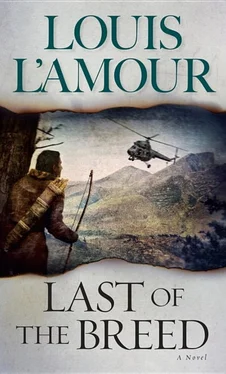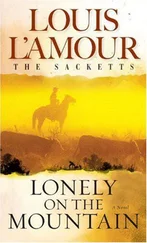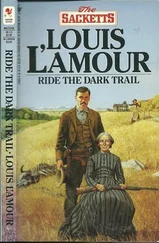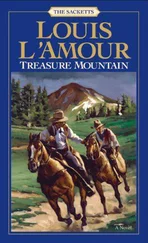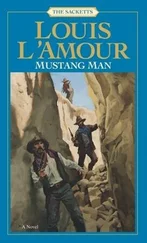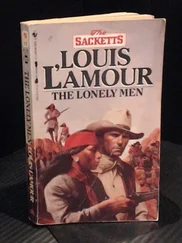Louis L'Amour - Last of the Breed
Здесь есть возможность читать онлайн «Louis L'Amour - Last of the Breed» весь текст электронной книги совершенно бесплатно (целиком полную версию без сокращений). В некоторых случаях можно слушать аудио, скачать через торрент в формате fb2 и присутствует краткое содержание. Город: New York, Год выпуска: 2010, ISBN: 2010, Издательство: Random House Publishing Group, Жанр: Триллер, Историческая проза, Приключения про индейцев, на английском языке. Описание произведения, (предисловие) а так же отзывы посетителей доступны на портале библиотеки ЛибКат.
- Название:Last of the Breed
- Автор:
- Издательство:Random House Publishing Group
- Жанр:
- Год:2010
- Город:New York
- ISBN:978-0-553-89935-1
- Рейтинг книги:3 / 5. Голосов: 1
-
Избранное:Добавить в избранное
- Отзывы:
-
Ваша оценка:
- 60
- 1
- 2
- 3
- 4
- 5
Last of the Breed: краткое содержание, описание и аннотация
Предлагаем к чтению аннотацию, описание, краткое содержание или предисловие (зависит от того, что написал сам автор книги «Last of the Breed»). Если вы не нашли необходимую информацию о книге — напишите в комментариях, мы постараемся отыскать её.
Last of the Breed — читать онлайн бесплатно полную книгу (весь текст) целиком
Ниже представлен текст книги, разбитый по страницам. Система сохранения места последней прочитанной страницы, позволяет с удобством читать онлайн бесплатно книгу «Last of the Breed», без необходимости каждый раз заново искать на чём Вы остановились. Поставьте закладку, и сможете в любой момент перейти на страницу, на которой закончили чтение.
Интервал:
Закладка:
For one brief, awful moment he was above the wire and fear flashed through him. If he fell into it…!
He landed on the balls of his feet, knees slightly bent. He fell forward, his fingers touched the ground, and then he was running. As his pole hit the ground there was a burst of fire, and then the lights flashed on. The edge of the forest was just feet away.
Wet branches slapped his face, tore at his clothing. He pivoted away, saw a dip in the ground, and ran down a small declivity as bullets tore the leaves above his head. In his track days he had done the mile in four minutes and fifteen seconds. Not good enough to put him up where the winners were, but how fast could he do a mile now over strange ground and through brush and trees?
When he had covered what he believed was a half-mile he slowed to a fast walk. Distance was essential, but he must conserve his energy, also. He walked a hundred fast steps, then ran again.
A road, scarcely more than a dim trail. He looked, then crossed swiftly, and ran through a small watercourse. His lungs sucked at the fresh, tangy air. He could smell the pines.
It would take them five minutes to discover that he had escaped. They would find the pipe, but would they guess at once that he had pole-vaulted over the wire? Say another five minutes to get a search organized and moving. In the night and fog they would be handicapped in following his trail and would trust to a hurried search and patrols on all existing roads.
Through a momentary rift in the fog he glimpsed the stars. He was not far off the route he intended to follow.
Off to his right he heard the roar of a stream. He felt his way to the bottom of a small gorge where he stepped into the water and walked upstream. Several times he paused to listen, but the rush of the water drowned all other sounds.
Coming up to a stone shelf, he left the water without leaving a trace. He stepped from that rocky ledge to another, leaving no tracks. He swung from one low-hanging limb to another, then came upon a path where he ran, following it for some fifty yards. He crossed another road, dipped into the forest, and ran through the trees. Behind him he heard the roar of a motor.
A car was passing along the road he had just crossed. He stood, not moving, until it had raced away.
Before and around him was the taiga, the Siberian forest. One of the guards had mentioned Malovsky, obviously a village or town, but one of which he knew nothing. He knew the prison was in an area of the Trans-Baikal, in Siberia, and he had read enough to know that the region was changing. An almost unbroken wilderness not too many years ago, the Russians had discovered that the area was a treasure house of mineral wealth. Consequently, new roads were being built and lumbering and mining were increasing; at any time, he might come upon such operations. He must move with caution.
The prison compound had been in a basin some six or seven miles across, and except for the area around the prison, it was thickly forested. His escape had been to the west, but he had swung around to the east and was now climbing into a rocky, mountainous area scattered with pine forest. He kept under cover, for it was growing light and searchers would be sweeping the country around with binoculars. Keeping to a slope, he found his way to a small stream that ran down from the mountains toward the east.
He saw no signs of life — no wood cutting, no mining. Walking on rocks, he left few tracks, although at this stage he doubted if they would be looking for them. At first there would simply be a wide, sweeping search, and not until they failed to find him would they begin looking for tracks or a trail.
He no longer ran, but walked as steadily as the terrain would permit. The stream turned north and he followed it. From a slight elevation he glimpsed a river into which this emptied. It offered the easiest way, but one that would grow increasingly dangerous, as rivers were likely to be used or lived along. He took the chance and followed the stream down. The river ran east and west, and when he reached it he found the flow was toward the east.
The banks were heavily forested, and at one point he discovered a large drift log with many branches clinging to it that had hung up in the sand on a small point. He squatted among the branches, got onto the log, and pushed off, crouching low and hoping not to be seen.
Several times he saw deer, and once he glimpsed a brown bear. The animal looked toward him incuriously; then seeming to catch his scent it lumbered off into the trees. It was a large bear, fully as big as some grizzlies he had seen.
The sun was high and the sky cloudless. With a broken branch still retaining some foliage, he tried steering the drift log, moving in toward the shore.
He judged the drift to have been about two miles an hour, and when he finally edged the tree to shore at least eight hours had passed. He beached the tree with several of its kind and staggered ashore, his legs stiff from holding virtually a single position. He was hungry, but he had been hungry before. Working his way back into the woods he made a bed in the moss and leaves and lay down to sleep.
Hours later he awakened, drank from a nearby stream, and sat down again to study his situation.
He did not know where be was except in a very general sense. He was east or northeast of Lake Baikal, possibly in an area known as Yakutia, which was now undergoing rapid development. Hence, he might come upon people at any time. These he must avoid.
He must travel with extreme care not to be seen or to leave any vestige behind that might arouse the curiosity of dwellers in the country.
He would need food, warmer clothing, a weapon, and if he could find it, a blanket. Somewhere, somehow, he must learn his location. At present what he needed was distance. Travel on the river had been slow and very risky, but also it meant no trail was left behind. Following the river was an easy way, but one that would grow ever more perilous.
Food could wait. At times he had gone several days without eating, and he could do so again.
Among the fallen timber and broken limbs he found a staff that suited his purpose. It would help in walking and would be a weapon if he needed it. And he knew how to fight with a stick.
He started walking, moving away from the river. He had gone but a few hundred yards when he came upon a trail, evidently a game trail but perhaps used by hunters as well, He walked along at a steady pace, ears alert for any sound, eyes constantly seeking, searching.
Long ago he had attended a lecture given by an Army Intelligence officer on Siberia and its terrain. His memory was geared to such things, and he tried now to recall what had been said and what had been pointed out on the blown-up map. There were low mountains, much swamp, and an involved river system. Despite the cold, much of the country in the Trans-Baikal received little snowfall.
Lake Baikal he remembered well, as it is one of the most interesting bodies of water on the planet. Some four hundred miles long, in places more than fifty miles wide, and over five thousand feet deep, it holds a large part of the fresh water on earth. Visited often by Russian tourists, it was also a haven for the Japanese who were playing a major role in the development of Siberian industry. The Japanese were relying on the Trans-Baikal for much of their raw material.
Since his capture he had been trying to reconstruct mentally that map he had seen and to recall what he had heard. Fortunately he had always liked to read, and the books his grandfather had brought from the Hudson’s Bay post had included many on Canada, the Bering Strait, and the coasts opposite.
Four of the largest rivers on earth flowed out of Siberia. If he was where he believed, the nearest river was the Lena, and the Amur would be off to the south, some of it along the Manchurian border.
Читать дальшеИнтервал:
Закладка:
Похожие книги на «Last of the Breed»
Представляем Вашему вниманию похожие книги на «Last of the Breed» списком для выбора. Мы отобрали схожую по названию и смыслу литературу в надежде предоставить читателям больше вариантов отыскать новые, интересные, ещё непрочитанные произведения.
Обсуждение, отзывы о книге «Last of the Breed» и просто собственные мнения читателей. Оставьте ваши комментарии, напишите, что Вы думаете о произведении, его смысле или главных героях. Укажите что конкретно понравилось, а что нет, и почему Вы так считаете.
